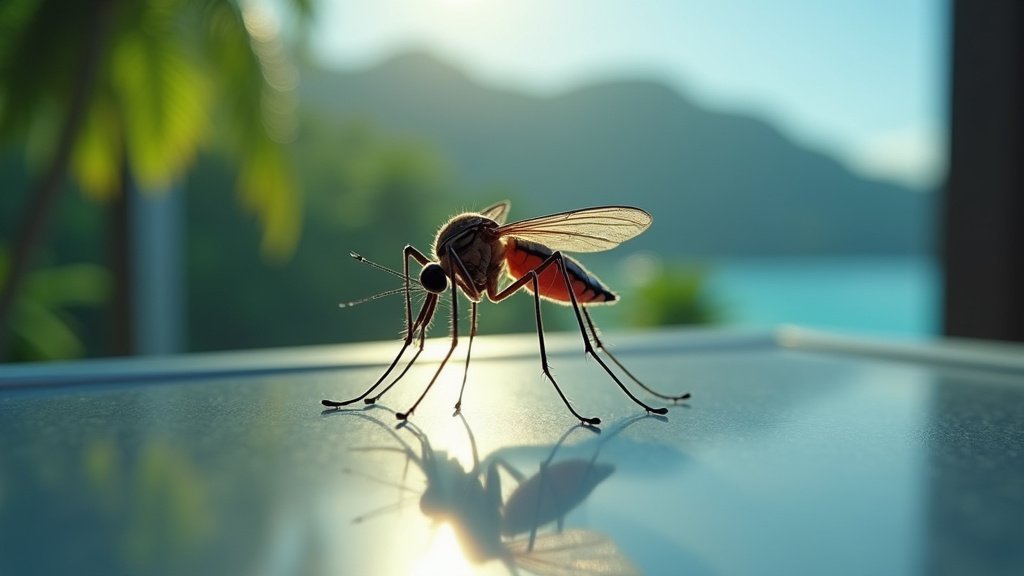KINGSTON, Jamaica – In a significant public health news development, Jamaica has officially commenced the piloting of the Sterile Insect Technique (SIT), an innovative and environmentally friendly approach designed to dramatically curb the prevalence of mosquito-borne illnesses such as Dengue, Chikungunya, and Zika. This marks a pivotal moment in the nation’s ongoing battle against these persistent public health threats.
Reported by Rochelle Williams, this initiative is a core component of the Ministry of Health and Wellness’s (MOHW) comprehensive Integrated Vector Management (IVM) programme, aiming to introduce a sustainable alternative to traditional vector control methods that are increasingly facing challenges. The headline signifies a forward-thinking shift in public health strategy for the island of Jamaica.
A New Era in Vector Control
The Sterile Insect Technique is a sophisticated form of biological control. It involves the mass rearing of Aedes aegypti mosquitoes, the primary vector for these diseases in Jamaica. Once reared, the male mosquitoes are sterilized using gamma radiation at a specialized facility. These sterile males are then systematically released into the environment. The premise is simple yet effective: when sterile males mate with wild female mosquitoes, no offspring are produced, leading to a significant reduction in the overall mosquito population over time. This method stands apart from chemical interventions, offering an ecologically sound solution.
Medical Entomologist and National Programme Manager for Vector Control at the MOHW, Sherine Huntley-Jones, emphasized the critical need for such innovative tools. She noted that traditional insecticide-based approaches are encountering increasing resistance from mosquito populations, necessitating new and effective strategies to safeguard public health.
Key Partnerships Driving the Initiative
This ambitious pilot project is the result of a concerted collaborative effort involving several key entities. The International Centre for Environmental and Nuclear Sciences (ICENS) at the University of the West Indies (UWI), Mona Campus, plays a crucial role, housing the multi-purpose gamma irradiation machine essential for sterilizing the insects. Senior Research Scientist at ICENS, Johann Antoine, highlighted that the state-of-the-art irradiator, procured with support from the International Atomic Energy Agency (IAEA), was brought to Jamaica specifically to address national development issues, including reducing disease transmission.
Jamaica’s participation in this IAEA project underscores an international commitment to leveraging nuclear technology for peaceful and beneficial applications in public health. Further collaboration on the ground includes the Scientific Research Council (SRC) and the Planning Institute of Jamaica (PIOJ), reinforcing a multi-agency approach to tackle this complex issue.
The Persistent Threat of Mosquito-Borne Diseases
Jamaica has a long and challenging history with mosquito-borne diseases. The Aedes aegypti mosquito, which transmits Dengue, Chikungunya, and Zika, is endemic to the island. While malaria, carried by the Anopheles mosquito, was eradicated in Jamaica in 1965, Dengue continues to pose a significant and recurring threat.
The severity and frequency of Dengue outbreaks have notably increased over the past quarter-century. Previous years have seen substantial case numbers and even fatalities, with over 12,794 dengue notifications recorded between January 2018 and November 2019, alongside 61 suspected or confirmed deaths. Beyond direct health impacts, these outbreaks carry significant economic costs; for instance, Chikungunya outbreaks led to an estimated annual productivity loss of €36 million, underscoring the broad societal burden of these illnesses.
Looking Ahead: A Healthier Jamaica
The groundwork for this SIT pilot project has been underway for several years, with discussions and preparations for its launch dating back to 2019 and 2020. At that time, former Health Minister Dr. Christopher Tufton had already articulated the government’s intention to move beyond conventional methods like fogging, acknowledging their diminishing effectiveness.
This new chapter in vector control offers immense promise. By preventing mosquito reproduction at its source, the SIT aims for a more sustained and impactful reduction in mosquito populations, thereby lessening disease transmission. The successful implementation of this pilot could significantly improve the quality of life for Jamaican citizens and reduce the considerable strain on the nation’s healthcare system and economy, marking a transformative moment in public health for Jamaica.

